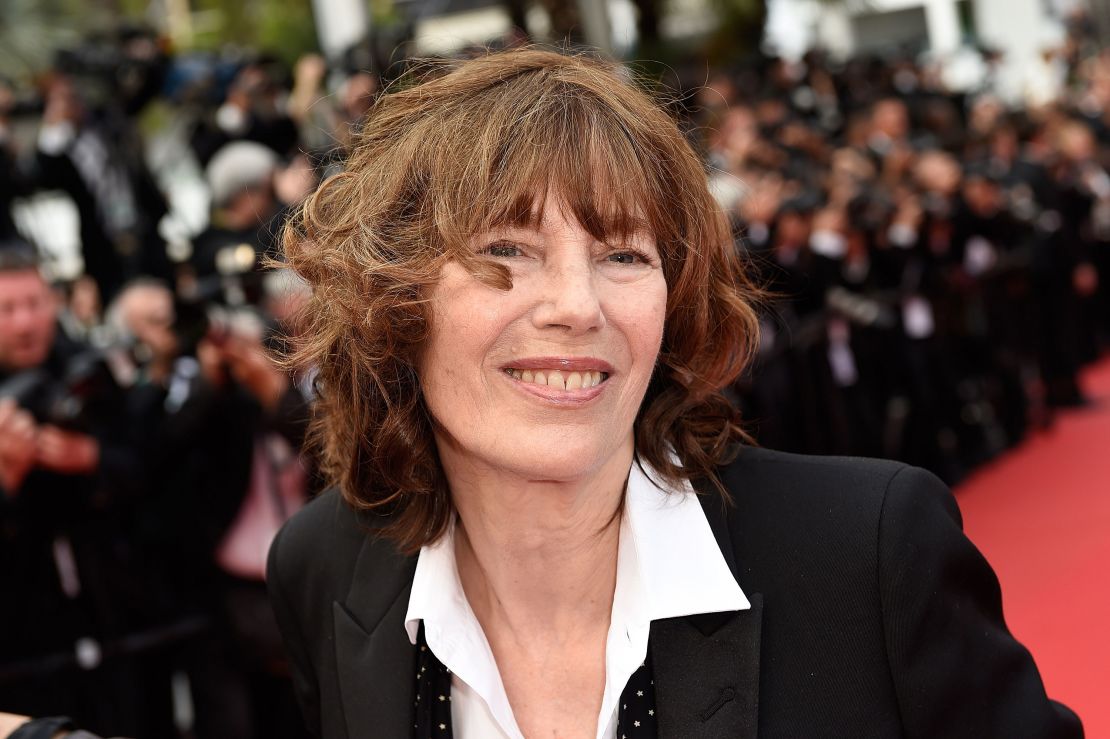Editor’s Note: CNN’s Chief International Anchor Christiane Amanpour interviewed Jane Birkin at home on Tuesday, February 18.
For more than a decade, ’60s style icon Jane Birkin’s relationship with Serge Gainsbourg – a young English actress and the rebellious French singer almost 20 years her senior – was the subject of widespread public fascination.
As Birkin continues her “Le Symphonique” tour, in which she performs orchestral versions of her former partner’s greatest hits, she still expresses fond memories of their early rendezvous.
“I was delighted, as (someone) coming out of a boarding school in England with everyone mocking the fact that I had no bosom, saying I was a ‘half-caste’ – half girl, half boy,” she recalled, referring to her slight physique in an interview with CNN’s Christiane Amanpour. “What a delight to come to Paris, and for Serge Gainsbourg to say that he’s always been afraid of bosoms.”
Following what she described as a “really miserable marriage” to composer John Barry, Birkin recalls being “pleased that people thought I was pretty and … an object of desire.”
But the relationship between Gainsbourg, who died in 1991, and the London-born starlet – a successful actress, musician and model in her own right – was more than skin deep.
Their partnership was also one of creative and musical collaborators. Birkin, now 73, recounted the story behind Gainsbourg’s best-known song “Je T’aime… Moi Non Plus” (“I Love You… Me Neither”). Originally recorded with his former lover, Brigitte Bardot, the track became a hit across the anglophone world after he re-recorded it with Birkin.
“He was a gentleman, but he couldn’t quite resist showing me what he’d got in his drawer and making me listen to ‘Je T’aime Moi… Non Plus,’ with Bardot, which was incredibly sexy. And so he said, ‘Do you want to sing it?’ And as I was madly in love with him, I said, ‘Well, of course.’

“No one has ever done better than him,” she added, reflecting on Gainsburg’s cultural impact. “And probably because he was ahead of his time.”
Of course, for those too young to remember the pair’s 13-year romance, or classic films like “Death on the Nile” and “Kaleidoscope,” Birkin’s name will nonetheless be familiar – perhaps thanks to the Hermès bag named after her.
The actress recounted the now-famous incident in which she found herself sitting next to Hermès’ chairman, Jean-Louis Dumas, on a flight to London. As items spilled out of her oversized Kelly bag – an earlier design by the French luxury house, popularized by Grace Kelly – Birkin suggested a new design.
“I said, ‘Why don’t you make a bag that’s sort of four times the (size of the) Kelly, that you could leave open?” she recalled asking Dumas.
“He said, ‘Well, draw it for me.’ And so I drew it on one of those sick bags – the vomit bag in the airplane. And he was true to his word,” she said.
Birkin bags are now coveted luxury items that re-sell for hundreds of thousands of dollars – though the woman behind the idea never received royalties for the design. And while her association with the bag means “nothing much” to the actress and singer, she seems unfazed that her name has achieved a fame of its own.
“It was funny to come to New York and they said, ‘Oh, Birkin – like the bag?’ I said, ‘Yes. Now the bag is going to sing.’”
In a wide-ranging interview, set to air on CNN International on Friday, Birkin also reflected on the #MeToo movement. She suggested that France, where she has lived for much of the last five decades, is “usually about 10 years behind England and maybe 15 years behind America” in the drive to speak out against sexual misbehavior .

But she pointed to her 17-year-old grandson as an example of how attitudes towards women’s rights and sexual consent are changing.
“The way he’s been educated to ask girls what they think, to have their opinion, to only do things if the girl wants to – that a whole way of thinking, that’s quite un-macho, (is) the way that boys have been educated, as from now,” she said. “I think that’s what will change things … the attitude of young men, and the fact that women can feel that they’re protected in their workplace.
“Things will never be exactly the same again – and that’s a revolution.”






